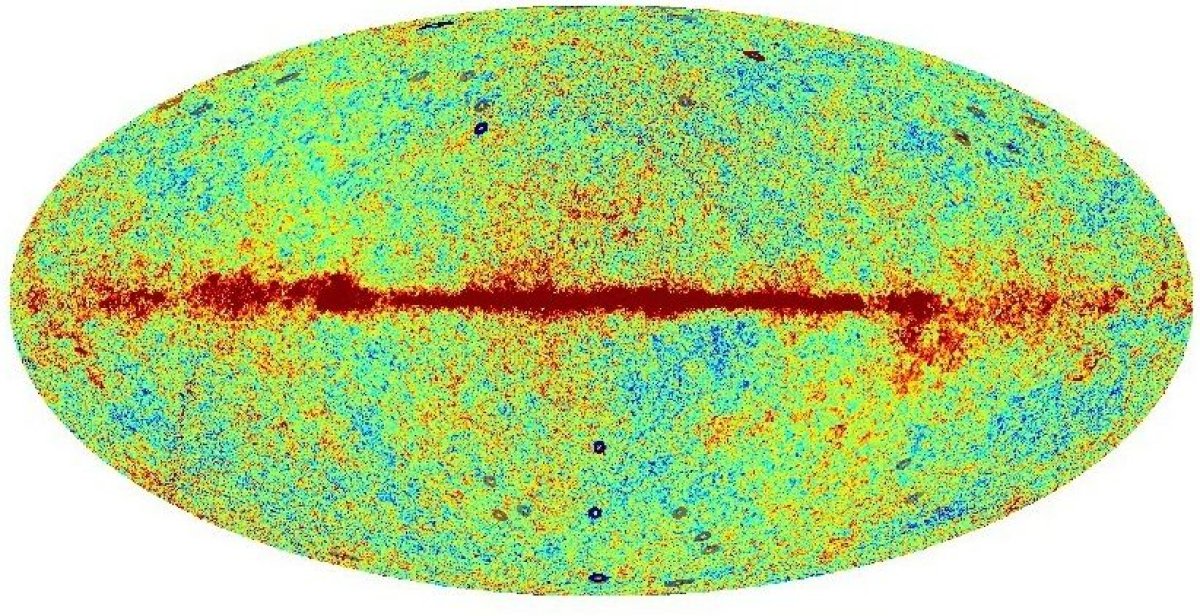A group of researchers say they have identified the remnants of black holes from another universe which existed before our own.
In a paper published on the pre-print server arXiv.org, a team led by the renowned physicist and mathematician Roger Penrose from the University of Oxford, argue that signs of these black holes can be detected in the faint radiation left over from the Big Bang which is found throughout the entire universe, known as the cosmic microwave background (CMB), LiveScience reports.
Their new work is based on a controversial but fascinating idea known as conformal cyclic cosmology (CCC) which is an attempt to explain the fate and history of the universe.
This model, first proposed by Penrose in 2010, states that the universe is actually made up of a series of universes which go through infinite cycles. The big bang of each of these universes has its origin in the remote future of the previous one, so essentially, when one ends, a new one begins, according to the Penrose Institute.
When this happens, "imprints" of the black holes in a preceding universe will remain in the next universe and we can actually detect them, according to the CCC model.
In the 1970s, Stephen Hawking made a famous prediction that black holes expend energy via electromagnetic radiation. The mass and energy of black holes is gradually reduced by this "Hawking radiation," meaning that those which do not gain mass by other means will shrink and eventually die (although the time it would take for a black hole to completely dissapear is many, many times longer than the current age of the universe.)
The new paper suggests that the Hawking radiation created by evaporating black holes at the end of a universe will leave behind a signature that survives into the next universe in the form of "Hawking points"—individual energy sources, hidden in the cosmic background radiation.
The researchers examined a map of the cosmic microwave background in the early universe created by operators of the BICEP2 South Pole telescope, in addition to data collected by the European Space Agency's Planck space probe, which showed strange swirls of polarized light in the CMB. Initially, other scientists said that these swirls could be explained by gravitational waves—ripples in space-time—produced by the universe's expansion or interstellar dust.
But the authors of the latest paper suggest that these anomalous, point-like, primordial energy sources in the very early universe are very likely to be the Hawking points predicted by the CCC model. These points are very difficult to detect because they are very faint and the CMB varies randomly.

It is important to note that these findings are still very speculative and have not been widely accepted by the scientific community, Forbes reports. Because the CMB varies so much, many argue that the Hawking points could be explained by "noise" in the data or other factors. Furthermore, the BICEP2 team has yet to release the data behind the map that the authors used to make their calculations, meaning the picture could change.
But if the claims do turn out to be true—something that would require extraordinary evidence—it would bolster the case for the CCC model of the universe and revolutionize our current understanding of the cosmos.
Uncommon Knowledge
Newsweek is committed to challenging conventional wisdom and finding connections in the search for common ground.
Newsweek is committed to challenging conventional wisdom and finding connections in the search for common ground.
About the writer
Aristos is a Newsweek science reporter with the London, U.K., bureau. He reports on science and health topics, including; animal, ... Read more
To read how Newsweek uses AI as a newsroom tool, Click here.








